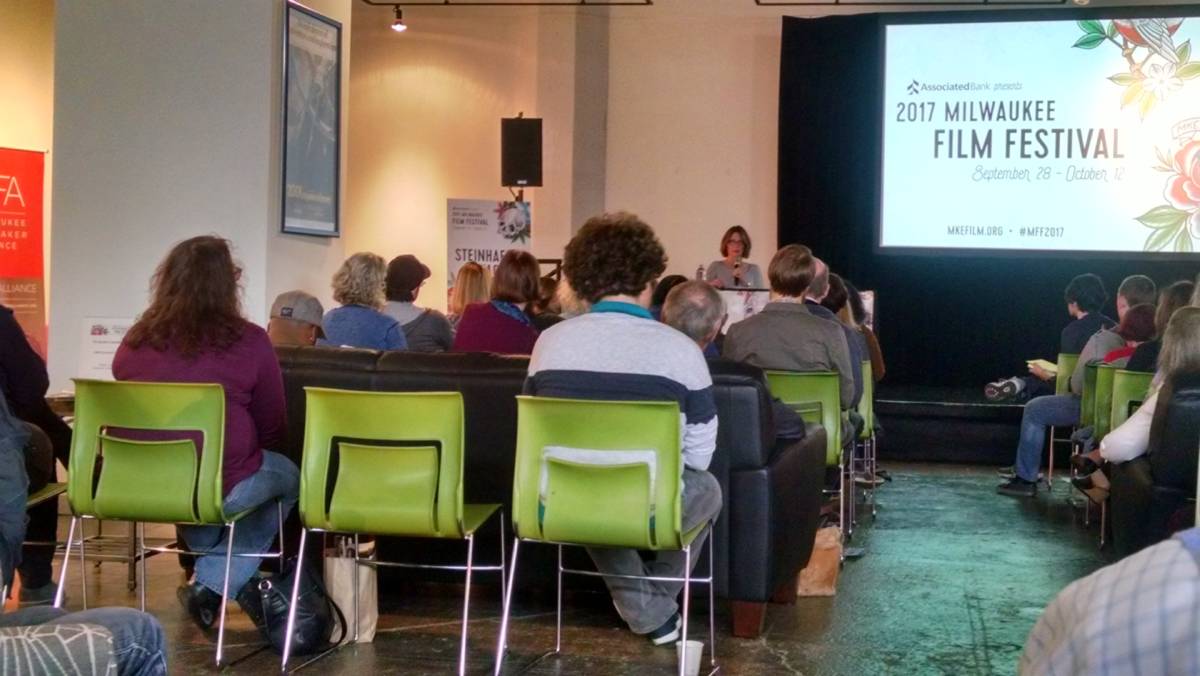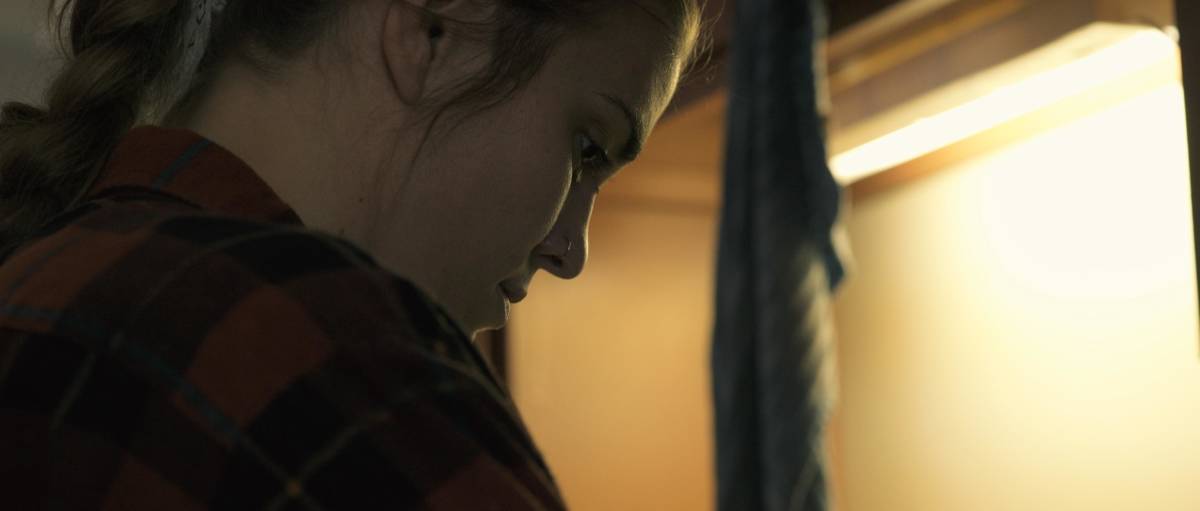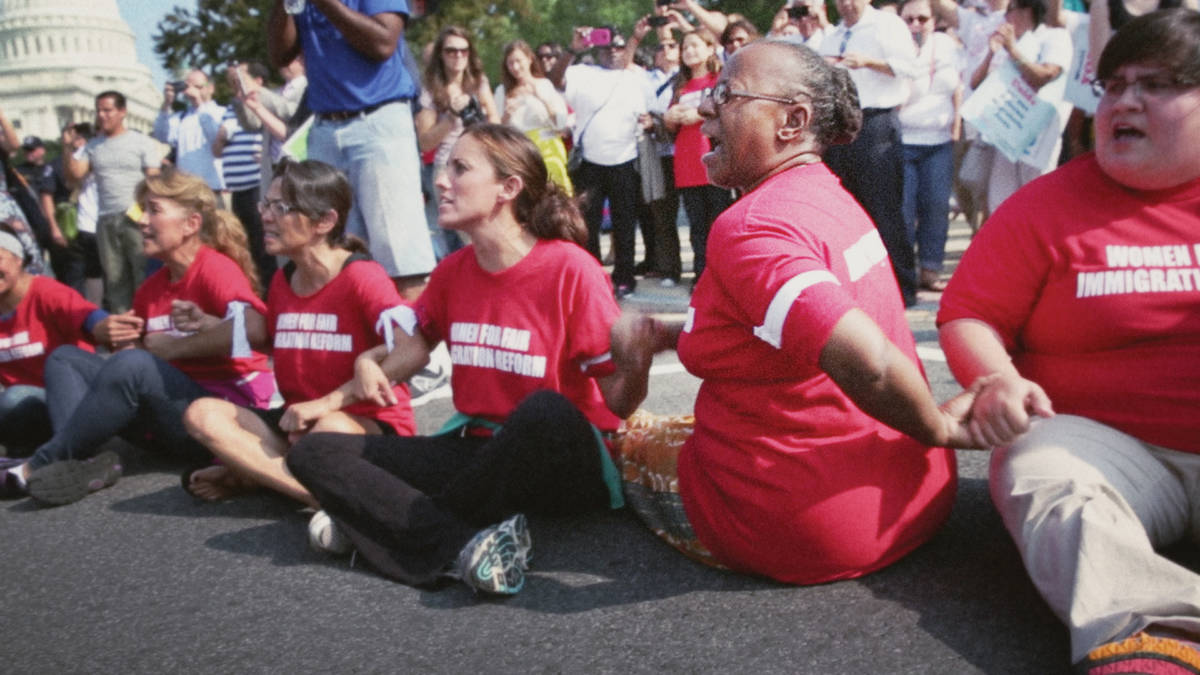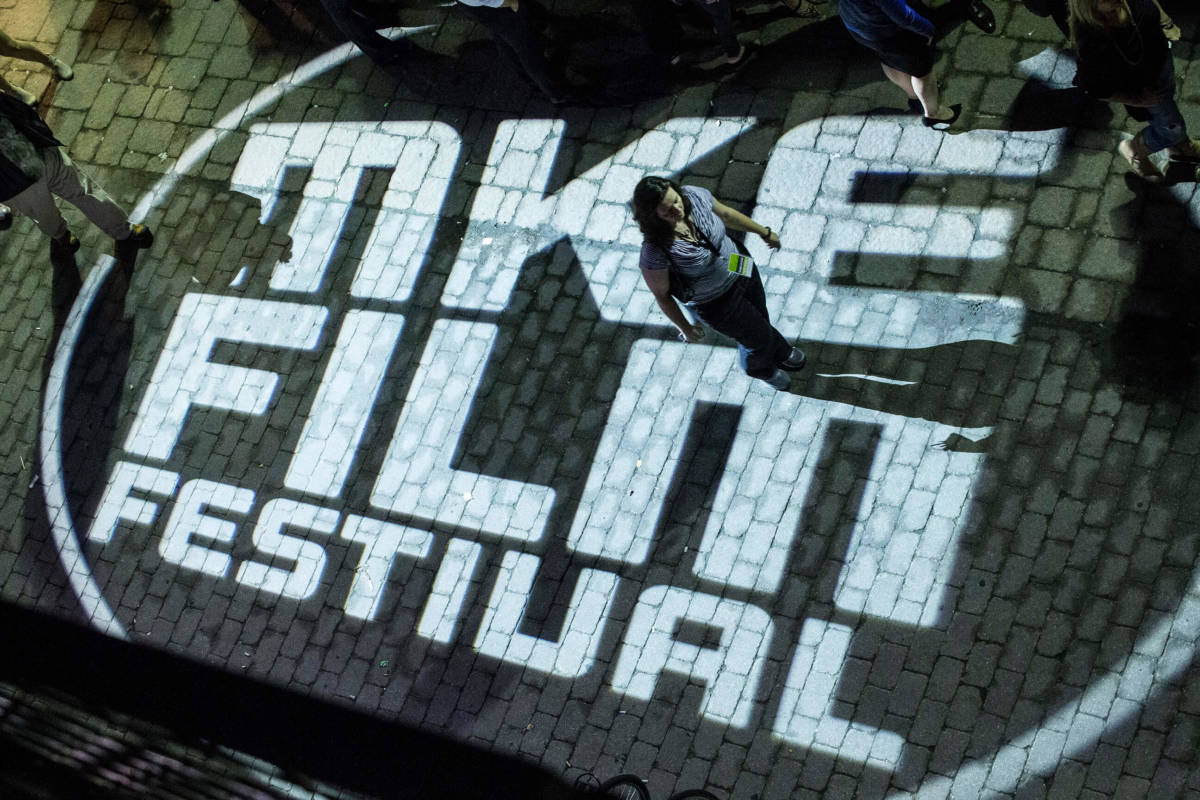Day three of the Milwaukee Film Festival was another busy day. I may have only attended one panel this time, but I managed to pack in three movies afterwards. As I did so, an interesting pattern emerged. Somehow, I seemed to pick movies that were about the divisions between us, whether they were racial, class-based, or more personal and familial. Sometimes people were able to bridge the gap, sometimes not, but either way it was refreshing to see it addressed in a more positive, clear-sighted way.
State of Cinema: Talking Pictures With Ann Hornaday

It was just one panel for day three, and I kind of expected it to be more cynical. It was a discussion of the state of cinema by a critic, after all. But Washington Post film critic Ann Hornaday was surprisingly optimistic about the movies of today. Part of her good news actually involved a still relatively new trend in Disney’s films, that of giving indie auteurs the reins for big budget pictures. They seem to have figured out a seemingly self-evident fact that most studios nevertheless can’t seem to learn: whether the movie is big or small, directors matter, and the movie actually has to be good.
As Hornaday puts it, since some of them have committed to this very simple idea, it’s led to the rebirth of smaller, 70s type dramas that don’t have the built-in audience superhero movies do, but reap rewards nevertheless. She didn’t even seem that anxious about the seemingly frivolous red carpet stuff, or the death of the more traditional moviegoing experience. As in the case of the former, it’s free advertising that helps movies get made. In the case of the latter, all the anxiety is really about the death of community. I’m not sure I agree so much, but I did leave the panel feeling happier about the movies being made. I myself do miss the communal experience also, but I can’t feel too depressed if that’s the price of having so much more diverse, creative content literally at my fingertips.
Tell Them We Are Rising: The Story of Black Colleges and Universities

Speaking of community, this documentary makes a very good case for the theater experience. As Tell Them moves along, I could hear the audience murmuring in agreement when various talking heads make a point, and their grief when blood is spilled on-screen. Because while everyone interviewed agreed on the importance of education, all of them also related the complicated history black people have had with it. Just what should education look like in order to empower a group so historically marginalized and ignored?
Tell Them tries, and mostly succeeds in providing the answer, as it chronicles how cruelly slaves and anyone trying to teach them how to read were punished, how black colleges tried to fill the void left by history, how they were often run by white presidents who had contempt for them, or were condescending at best, providing training only in domestic or the trades. Social movements and national leaders tended to come into their own at these places, most of which became havens from a hostile world. It’s an interesting, fascinating history that doesn’t delve deep enough at times, rather abruptly leaving off at a showdown between police and students at a college in the 1970s to fast-forward to the state of various institutions today, some of which are thriving, while others have long since fallen into disrepair. The portrait may be incomplete, but what it does cover is a fascinating history that’s still contributing to the fabric of our society today.
Rating: 8/10
Dear Coward on the Moon

Dear Coward on the Moon is deceptively quiet film whose impact is barely less powerful for its subdued tone. Made and shot in Wisconsin, Dear Coward follows nine-year-old Jasmine (Mallory Jack McGuire), whose imagination often takes her to the moon that fascinates her. Her older sister Jade ( Ashley Shelton) is her guardian and source of support, struggling to provide for them both in a less than fulfilling job. When Jasmine discovers a family secret about her past, it causes her to run away, leaving her frantic sister Jade desperately trying to track her down and attempt to repair their relationship. The film can be too quiet at times, and it leaves a bit too many questions unanswered, but the talent involved, from its two leads to the confident direction of writer-director Carol Brandt, indicates a talent that will continue to rise.
Rating: 7/10
Acorn and the Firestorm

ACORN went from famous to infamous after a video supposedly showing the grassroots anti-poverty organization trying to assist a fake prostitute and a pimp in their trafficking efforts. Even the head of ACORN believed the video. But as the documentary ACORN and the Firestorm delves deeper into the history of the group, flaws and all, what looks like a clear case of organizational corruption slowly becomes assassination by media as they were at the peak of their power. In their successful efforts to advocate for low-income people, ACORN made quite a few very powerful enemies, and soon accusations of voter fraud built to something more serious, leading the organization to declare bankruptcy and shutter its doors. Given our polarized reality today, the resulting scandal and its ramifications feel eerily prescient. This was began by a pair of young conservative amateur journalists after all, neither of whom seem to regret what they’ve done. And it gained traction on the right-wing media sphere. It’s what makes the tragic fall-out feel simultaneously like old news and disturbingly relevant in our fake news era.
Rating: 10/10
Some of the coverage you find on Cultured Vultures contains affiliate links, which provide us with small commissions based on purchases made from visiting our site.

